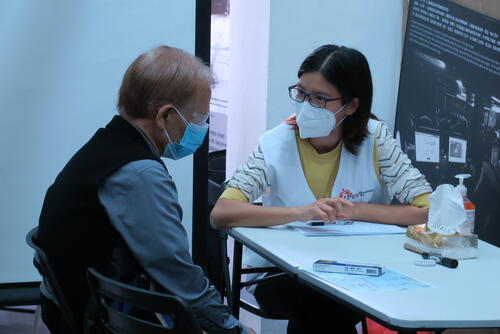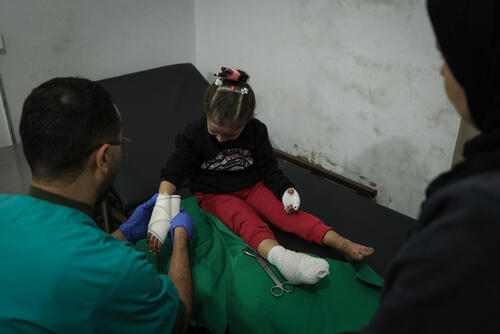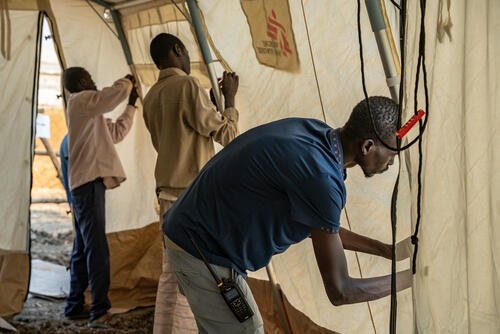The following statement was read out at the Fourth meeting of the Intergovernmental Negotiating Body (INB) for a World Health Organization instrument on pandemic prevention, preparedness and response.
MSF calls for stronger commitments to humanitarian populations of concern and on humanitarian access.
It is essential to include a reference to International Humanitarian Law in the Accord, as it is the only legal framework which applies during armed conflict for protecting medical personnel and their work and patients. In addition, MSF calls for stronger protections for healthcare workers.
The Accord must guarantee and facilitate rapid, safe, sustained, and unimpeded access for medical and humanitarian personnel to all vulnerable groups of people, including those who have been displaced, detained, are living in humanitarian settings or in areas under the control of armed groups.
Proposed new mechanisms should have a people-centred focus, with meaningful participation from communities and civil society.
The definition of “pandemic” should be clarified to enable the meaningful implementation of the Accord. The scope of “Pandemic-related products” should be expanded. Given its transversal nature, the principle of transparency should be expanded into a chapter. The Accord should establish clear and measurable indicators, particularly in provisions addressing antimicrobial resistance (AMR).
The Accord should explicitly introduce differentiated responsibilities between developed and developing countries for technology transfer and research and development capacity building to address inequity. MSF calls for establishment of obligations for states to ensure transfer of technology, instead of relying on voluntary actions alone. A positive obligation to incorporate public health safeguards in national intellectual property laws should also be established. Access and Benefit-Sharing (ABS) modalities should not be limited to donations to WHO and should include technology transfer obligations to developing countries. The Accord should include explicit recognition and protection of patients’ rights when collecting and reusing their genetic material, information and data.
MSF supports the establishment of no-fault compensation schemes for novel vaccines, as redress mechanisms for people who suffer severe adverse effects. These schemes should be established in consultation with civil society, humanitarian organisations and populations of concern.






